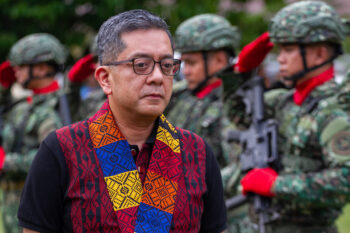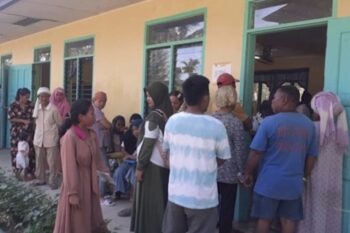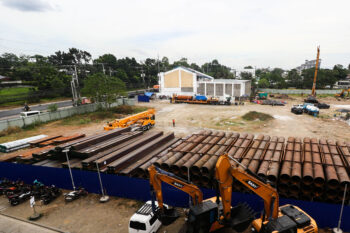III. Strategic Compromises (3. More Observations)
GENERAL SANTOS CITY (MindaNews / 20 Nov) – While the agreement in principle on “unacceptable status quo”, “ministerial form of government” and “asymmetric relations” and other issues to forge the FAB show how the dynamics of negotiation has worked, there are concepts and issues set aside that will challenge such dynamism. These concepts may be compromised and the issues taken for granted just to a certain extent beyond which the successful establishment of Bangsamoro would be risked.
By “successful establishment”, it means not just the establishment of Bangsamoro by the end of the Aquino III administration – that which the BTA will usher in 2016 – but of the Bangsamoro that for all time will fulfill the Moros’ aspirations to regain their identity and homeland free from centuries of injustices, inequities and ethnic prejudice. It can be asked: Do the Parties hold the same concept of “successful establishment”? In fact, this must be the motive force of the dynamics of negotiation.
Constitutional Imperative
“Constitutional processes” as an imperative in the Government-Moro Liberation Front peace negotiations took root at the first GRP-MNLF negotiation to seal the Tripoli Agreement of 1976, as stated in its Paragraph 16: “The Government of the Philippines shall take all necessary constitutional processes for the implementation of the entire agreement.” WhenMNLF approved this provision, GRP signed the agreement.
MNLF Chairman Nur Misuari, while admitting that he hastily approved this provision, said he thought that through the constitution the Philippine government would speedily implement the Tripoli Agreement. To his dismay, President Ferdinand E. Marcos used the constitution as the parameter to unilaterally implement it. From that time on it has become the government policy that peace agreements must be within the provisions of the constitution.
This constitutional imperative has bedeviled the Government-MILF peace negotiation. In 2008, the Supreme Court stopped Government from signing the MOA-AD on questions of constitutionality and later struck it down as unconstitutional. The Aquino peace team has been very careful not to fall into a similar predicament. As inferred above, it agreed to a Bangsamoro having a ministerial form of government and an asymmetric relation with the Central Government only as allowed by Article X, Sections 15 – 21 of the 1987 Constitution and other pertinent provisions.
It appears that to Government, the imperative to vest the BBL with constitutionality under the 1987 Constitution only is to establish Bangsamoro before President Aquino III steps down on June 30, 2016. Any provision in the BBL that will need the amendment of the Constitution can imperil this objective that would gift the President with a legacy that had eluded President Macapagal-Arroyo.
To MILF, entrenchment of Bangsamoro must be in the constitution – to the extent of amending it when necessary – to guarantee its stability and permanence. Statements of MILF Chairman Murad Ebrahim suggest that dictated by pragmatism the MILF would consider the Bangsamoro within the flexibility of Article X, Section 15 – 21 of the 1987 Constitution with the view of seeking the necessary amendments later. The FAB provides for this (VII.4.b).
How this strategic compromise will work when Bangsamoro is finally established, time will tell.
Independence, Transition
MILF has made two compromises to show the Aquino III government its sincere desire for peace, namely: its demands for independence and for a seven-year transition period for the Bangsamoro autonomous political entity. These factored into the negotiation of the FAB. However, only the second was done during the present administration.
Independence was the original demand of the Moro rebels. In Tripoli in 1976 and in Jakarta in 1993-1996, Misuari had to negotiate for autonomy as counseled by the OIC. In the negotiation of the MOA-AD, the MILF scaled down independence to “associated state” that as known by existing examples has an option for independence. In reframing the MOA-AD, MILF changed this to “state-substate” – affirming no independence.
In the “Decision Points on Principle”, this evolved into “ministerial form” of government modeled after the parliamentary-federal system having an “asymmetric relation” with the Central Government. MILF, in reality, only clarified and reaffirmed to the Aquino III government its decision of abandoning independence during its negotiation with the Arroyo government.
Until July 9, 2012 when Chairman Murad Ebrahim announced the shortening of the transition period to three years, MILF had held on to its original proposal of seven years – one year pre-interim (pre-transition) and six years interim (transition) – even if, obviously, it had to drastically revise its positions in “MILF Draft Agreement 2011” in order to arrive at the “Decision Points on Principle”. This and its abandonment of independence have been among its strategic compromises.
It should be asked: Will Bangsamoro on a shortened transition period become as stable as the Bangsamoro on a six-year transition following a one-year pre-transition?
In the FAB, the transition will be performed by the Transition Commission (TransCom) and the Bangsamoro Transition Authority (BTA). Under the Transcom, there will be no Bangsamoro yet; this period is in reality the “pre-transition” phase – just limited to the drafting of the BBL including proposals to amend the constitution “whenever necessary” and a third function with unclear relevance and feasibility.
In the road map, it can be inferred that this phase will cover the drafting of the BBL Bill (January – June, 2013); enactment of the bill into law during the First Session of the 16th Congress (July 2013 – June 2014); ratification and promulgation of the BBL, creation of BTA, abolition of the ARMM and establishment of Bangsamoro (July – December 2014) – a period of two years. The BTA has one and a half years (January 2015 – June 2016) – the real “transition period” – to prepare the Bangsamoro government for the takeover of the regularly elected assembly on June 30, 2016.
Compare Article V on “Framework for the Interim Period” of the MILF Draft Agreement 2011 and Part VII on “Transition and Implementation” of the FAB to appreciate in fact how much MILF had given up to suit the transition process to the term of President Aquino III and to avoid conflicts with the constitution or outright objections of members of the Congress as well as some anti-Moro political leaders. In his July 9 statement to the press, Murad pleaded that they had sacrificed so much already.
The crucial question is: How ready will Bangsamoro be to stand on its own feet after a short transition? This will be seen on June 30, 2016.
Only to What Aquino Can
Whether as a negotiation ploy or an admission of a desperate pursuit of the elusive peace agreement, Iqbal – as affirmed by Murad and other MILF top officials – has urged a number of times in his opening statements at the exploratory talks in Kuala Lumpur that now, with the original MILF leaders still at the helm, is the most opportune time for Government to conclude an agreement with MILF. The next generation of MILF leaders will come from today’s radical and impatient young Moro muhajideen.
Government negotiators must have seen through this. Assuring MILF of Aquino III’s enormous political capital, his sincere desire to end peacefully the Mindanao problems and his sympathy for the Moros flowing from the legacies of his father, the late Sen. Benigno S. Aquino Jr., and his mother, the late President Corazon C. Aquino, they promised to grant the Moro aspirations. And there’s a “but”: MILF must cooperate since Government can commit only what the President can give within his term.
A replica of the Maranao market: a smart souvenir hunter offering to buy a Maranao brassware if sold at half the selling price. The Maranao market scene in mind, we see the FAB as the end-point of astute bargaining – the strategic compromises. MILF accepted the assurance, giving President Aquino III their full trust; Government got the souvenir for the President – both brimming with hope for lasting peace in Mindanao and the best for Bangsamoro, the Moros and the Philippines.
However, will Bangsamoro limited to what the government of Aquino III can give within the term of the President fulfill the aspirations of the Moros?
The prospects are discomforting. If President Aquino cannot commit what he cannot give within his term, it’s improbable he would commit for the presidents after him. Will the BBL include a provision that the next presidents, as a policy, are obliged to support Bangsamoro under the concept of government as bound by its element of continuity? Should there be such a provision, how binding will it be?
In his statements, Murad believes that having an agreement is better than none. By this, the succeeding presidents will be obliged to support Bangsamoro. And a very challenging note: From reports of Luwaran, the MILF official website, it can be seen that the Moros are carried away by the FAB; failure to establish Bangsamoro and fully support it for the Moros to realize their aspirations would be another historic frustration.
(Next: IV. MILF Dictating Terms)
(“Comment” is Mr. Patricio P. Diaz’ column for MindaViews, the opinion section of MindaNews. The Titus Brandsma Media Awards recently honored Mr. Diaz with a “Lifetime Achievement Award” for his “commitment to education and public information to Mindanawons as Journalist, Educator and Peace Advocate.” You can reach him at patpdiazgsc@yahoo.com.)







